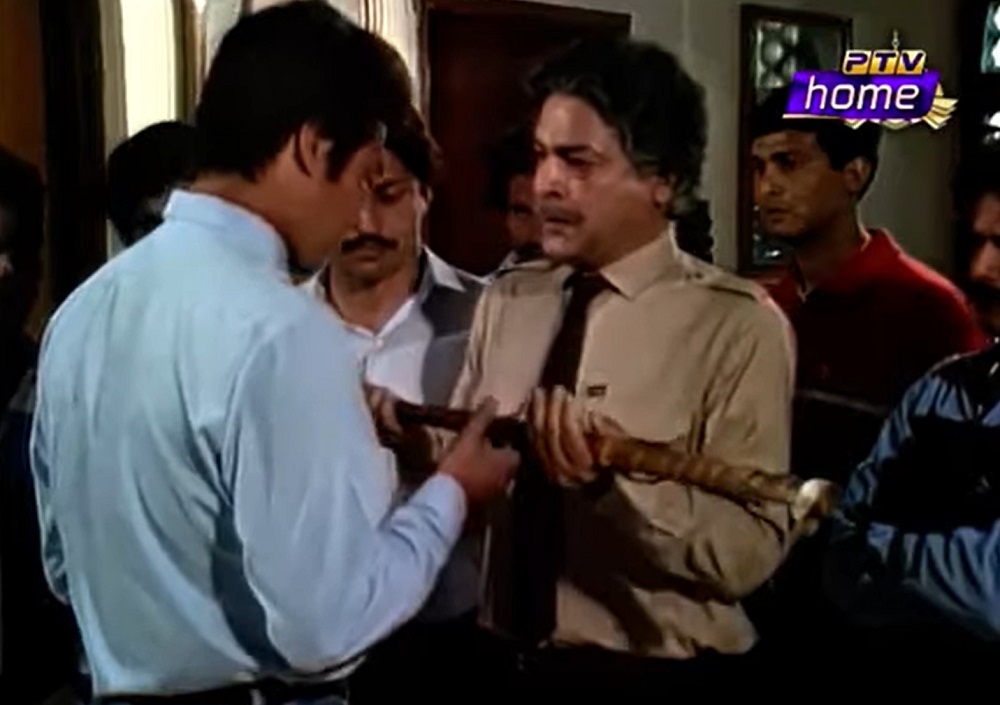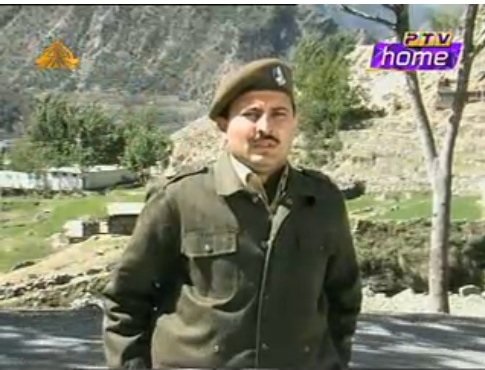Written by: Haroon Shuaib
Posted on: February 28, 2023 |  | 中文
| 中文
Sajida Syed, Qazi Wajid, Bakhtiyar Ahmed, Asim Bokhari and Nayyar Kamal in Rishtay aur Rastay
While Pakistan was introduced to television in 1964 with a pilot television station established in Lahore, television as a mode of communication and entertainment in mainland China traces its roots back to 1958, when the first national broadcast took place under the banner of Beijing Television. In 1978, Beijing Television was renamed China Central Television Network (CCTN). Today CCTN is considered the flagship national terrestrial television network of the People's Republic of China.
Interestingly, almost four decades ago in 1986, some forward-looking and creative producers, directors, writers, technicians, and actors from both sides came together to produce two very engaging television dramas. This was an era when the popularity of Pakistan Television (PTV) dramas was at its peak. The two dramas, produced as long plays, were very well received by viewers. Regrettably, while more such co-productions could help enhance understanding of each other’s cultures and societies in both countries, no noteworthy initiatives have been taken at the state level or by the private sector since then. Now that television dramas in Pakistan are struggling to explore new dimensions, television producers should be exploring more such collaborations with China, which has over 3,000 television stations.

Qavi Khan as the coach of Pakistan field hockey team passing on his prized hockey to the Chinese player trained by him
The first of the two coproductions between Pakistan Television (PTV) and CCTN was ‘Paiman-e-Wafa’ (The Promise of Allegiance) co-directed by Madam Xu Huanxi and Manzoor Qureshi. The main theme of the drama was the connection between players of field hockey from Pakistan and China. While field hockey is the national sport of Pakistan and the green shirts were earning laurels for the country at the international level during the ‘80s, in China, historically ice hockey had been more popular. After China’s introduction to field hockey in the 1970s, this form of hockey was slowly but steadily gaining popularity in the country. Paiman-e-Wafa was the story of a Chinese field hockey player, Shao, coming to Pakistan to get coaching alongside Pakistan’s hockey team. The friendships made on the field were the perfect analogy for the bond that both countries share.
Pakistan’s poster boy of the 80s, Asif Raza Mir, played the star athlete from Pakistan and a matching part was played by an actor from China. Muhammad Qavi Khan played the head coach and Manzoor Qureshi and Subhani BaYounis were also there in important roles. The ‘Dentonic girl’, Neelima Hasan, played the role of a doctor from Pakistan who travels to China to learn acupuncture, a key component of traditional Chinese medicine. The dialogues for the Chinese characters were dubbed in Urdu. The drama also had a cameo role for Sami Ullah Khan, a star hockey player of Pakistan who was also known as ‘The Flying Horse’, because of his great speed. This was the first time Pakistan’s television viewers got to see ice hockey in action. The highlight of the drama was the sports action which was beautifully captured by the crew from both countries.
The second play that was produced in partnership between PTV and CCTN was ‘Rishtay aur Rastay’ (Relationships and Highways). This story captured the life journeys of three generations of friendships between people of Pakistan and China. Weaved around the construction of the legendry Karakoram Highway along the historical silk route, Rishtay aur Rastay was directed by Bakhtiyar Ahmed on an idea presented by Obaid Ullah Baig and Kunwar Aftab Ahmed. The story was scripted for television by Taj Haider. Rishtay aur Rastay captured the life of an army engineer, Arsalan, played by Behroze Sabzwari, hailing from the Hunza Valley. Arsalan’s grandfather, played by Qazi Wajid, gets his son married to the daughter of his best friend from the neighboring Xinjiang province of China. The friend from China was played by Asim Bukhari, and the role of his daughter was essayed by Sajida Syed. All this takes place before the birth of Pakistan, when travel between the two regions was very difficult and both the families face hardship in trying to keep connected with each other. Arsalan’s mother pines for her parents, while his paternal grandmother, a role played by Nayyar Kamal, has an accident in Hunza, but has difficulty reaching down country in Pakistan for better medical treatment. As an engineering student in Islamabad, he harbors a dream to one day make a highway that can connect the northern areas of Pakistan to China. Here Arsalan meets an exchange student from China who is visiting Pakistan to learn Urdu, Ching May, played by Lee Xi Jay. He falls in love with her but before he could confess his love to her, she returns to her country. Lee Xi Jay was a very well-known opera singer from China who actually knew Urdu and recorded her own dialogues, which made her portrayal of the lead character quite realistic. Fate then takes Arslan to China, where he tries to find her but fails. On his return to Pakistan, he gets an opportunity to work on the under-construction Karakoram Highway. After a few years, in another interesting twist, the girl again returns to Pakistan as the wife of Arsalan’s counterpart Hoshang from China. Hoshang’s role was played by a very handsome actor from China named Zing Hong Shing.

Behroz Sabzwari played Arslan, an army engineer working as part of the team of builders that constructed Karakoram Highway
Karakoram Highway (KKH), jointly constructed by Pakistani and Chinese engineers, extends from Hasan Abdal in the Punjab province to the Khunjrab Pass in Gilgit-Baltistan, where it crosses into China and becomes China National Highway 314. One of the world’s highest paved roads, the construction of 1,300 km long KKH is a living proof of the excellence of Chinese and Pakistani engineers and builders. Many engineers and workers lost their lives and limbs during the construction of this vital route, as unforgiving mountains were blasted bit by bit to carve it. In the climax scene, an unexpected landslide poses a threat to the Chinses couple and Arsalan risks his own life to save them and gets injured during the blast.
A beautiful story, parts of ‘Rishtay aur Rastay’ were filmed in both Pakistan and China. Besides the actors, Pakistani and Chinese technicians, set designers, recording engineers, lighting crew, costume designers, makeup artists, and production managers worked collaboratively on this project. Music for the drama was composed by the leading musician from Pakistan, Nisar Bazmi, and the title song was sung by Saleem Shahzad.
Many years later Qazi Wajid recalled in an interview that visiting China and working on this coproduction was the highlight of his career, and an experience he could never forget as the Chinese people were very courteous towards their Pakistani guests and the country is beautiful. In one of his columns, the director of Rishtay aur Rastay, Bakhtiyar Ahmed, who also played an important role as an actor in the drama, remembered how hospitable Chinese people were and the warm welcome and admiration that the Pakistani artists received wherever they went in China. He recounted how the Chinese women were particularly impressed by the grace and charm of Nayyar Kamal. He has also documented that during their stay in China, the Pakistani artists were invited to many social and cultural events including a special cricket match organized by the Pakistani embassy, where the Chinese public was extremely interested in learning about this new game and meeting the artists from Pakistan.
With a thriving private-sector-led media in both countries at the present time, we hope that content creators soon come up with ideas to collaborate and bring similar heart-warming stories to their viewers.
You may also like: